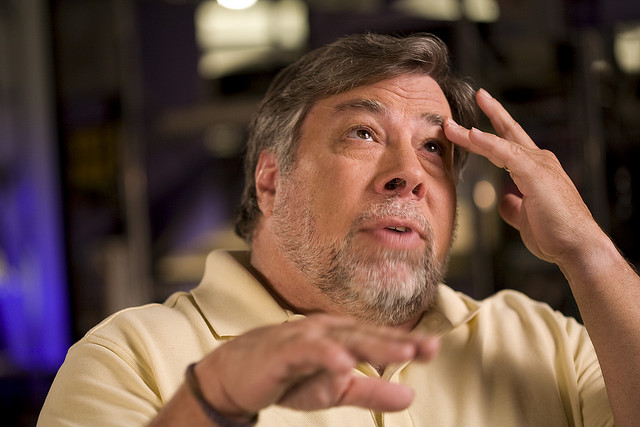 Commentary
Commentary
An opinion piece in last Sunday’s New York Times begged for my attention as I sipped coffee and tried to avoid weighty articles.
But I couldn’t resist the commentary The Rise of the New Groupthink by Susan Cain.
Its message is that our hyper-emphasis on collaboration and teams has tamped down creativity and encouraged conformity. Smart visionaries are forced to dumb down to the team norm or risk banishment to the margins.
Cain cited Apple co-founder Steve Wozniak as an example of a creative genius who worked outside the system.
Cain says Wozniak didn’t eschew collaboration but he knew if he was going to design a user-friendly computer in 1975 he would have to do it alone, and he did.
Perhaps Wozniak ascribed to the design axiom that a horse designed by a committee ends up a camel.
Fast-forward to Wozniak’s memoir where Cain reports that he says “I’m going to give you some advice that might be hard to take. That advice is: Work alone… Not on a committee. Not on a team.”
Ok, but what does this have to do with the Great Lakes issues?
When I first started working on those issues in 2002 as a volunteer I was struck by the uncommon intelligence of the environmental executives. I expected to encounter a smart and dedicated group but I had no idea that they would be so wise, savvy and sophisticated.
They rivaled and often surpassed the acumen of many of the best business executives I had worked with.
About this time two significant and potentially historic Great Lakes programs were gaining traction.

"Work alone… Not on a committee. Not on a team.” Steve Wozniak in Aug. 2008. Photo: OnInnovation (Flickr)
What has become the Great Lakes Restoration Initiative and the Great Lakes Compact were taking form and beginning to move through the approval processes.
Collaborative groups were formed. The often touted number was that 1,500 people worked on the restoration plan. The fact that so many contributed became a key selling point in pitch meetings with politicians.
That number — 1,500 – actually became a mantra that I guess was supposed to add to the plan’s veracity. It’s still referenced today.
As I watched this evolve I became concerned.
I was seeing process – collaboration — take precedent over a result. The name of the group pushing restoration was the Great Lakes Regional Collaboration. Worse yet, people with alternate views were urged to suppress them and join the parade. If they didn’t they were mostly ignored.
This was especially true with the Great Lakes Compact. Those who dared mention its serious flaws were shunted to the sidelines and at times painted as out of touch.
I have been on a number of team collaborations in my former corporate life and while a few had positive outcomes, most ended up languishing and eventually fading. Another few were outright failures, though that was never acknowledged.
I watched highly intelligent enviro executives devolve to behave exactly like the corporate ones I’d left.
It was easy. Read the plan and don’t ask the hard questions. Then drink the Kool-Aid and repeat the message without deviating. That’s what the PR consultants were advising.
Both the restoration initiative and the Great Lakes Compact have become the law of the land.
Some good things are happening with restoration, but mostly the program is a mile wide and an inch deep. It spans a dozen federal agencies who are collaborating. Separate from a focus on cleaning up toxic hotspots it is unlikely to accomplish much except at the margins, at least this iteration. Too bad the people who called for a more focused approach didn’t have their views considered.
The Great Lakes Compact is also showing vulnerability. It’s still unlikely that the water-needy southwest will get access to the Great Lakes in the near term. But the states are slow in complying with many of the compact’s provisions and show no appetite to do better.
And of course the bottled water loophole hasn’t gone away. Remember, during the runup to the Compact’s passage anyone who talked about it was totally ignored by the establishment working for its passage.
The author of The Rise of the New Groupthink is quick to point out the virtues of collaboration. Her commentary is not a screed for individualism at all costs, and I agree.
Neither the Great Lakes Restoraton Initiative nor the compact would have passed without a solid collaborative effort.
But there has to be a better way than to mimic the worst processes of corporate culture as we pursue environmental improvement.
Wouldn’t it be nice if we had a Great Lakes version of Apple’s Steve Wozniak?
A deep thinker who knew to proritize the result over the process. Who understood the value of collaboration but not at all costs.
That’s what we need.
